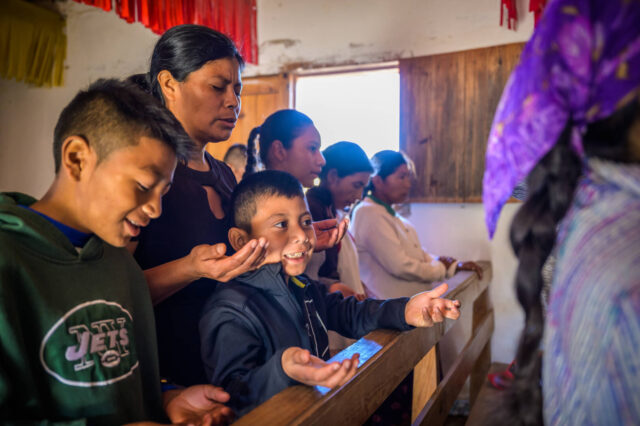If you think learning to do your own laundry, meal plan, budgeting, and taxes would be the central curriculum in an “Adulting 101” class, you’d be right. But learning how to be generous as an adult takes some extra intentionality.
“Adulting” is full of the mundane tasks of being a grown-up. There are days when being a grown-up is hard, and you’d rather make a fort or climb a tree. But there are definite perks as well. One of those perks and challenges is finally having an income and deciding where and how to spend this hard-earned money.
Step 1: Set a budget
When you were a kid, did you have one of those piggy banks with different sections for save, spend, and give? I did. The system my parents came up with involved jars with different labels for each category. For every dollar I got, 10 cents went into my save jar, then 80 cents into the spend jar, and 10 cents into the give jar. I would then take the contents of my give jar to church to put in the offering every week.
Budgeting as an adult is a bit more complicated (so many bills), but the basic principle still applies. So pick a budgeting app, and get going! Not having a budget is the financial equivalent of driving blindfolded. You need to be in control of your income and know where it’s going.
Step 2: Decide where and how to give
If you’re a Christian, the Bible gives lots of instructions on how to be generous. Here are a few examples of intentional giving and generosity:
- Remember that everything you have ultimately belongs to God. And for those who say, “but I earned it;” the Bible says God is the One who gave you the power to earn a living.
- “You may say to yourself, ‘My power and the strength of my hands have produced this wealth for me.’ But remember the LORD your God, for it is he who gives you the ability to produce wealth… .” —Deuteronomy 8:17-18 (NIV)
- Giving a tithe to your local church helps to keep it running and supports the people who minister to you and your community. This is one area where God tells us to put him to the test!
- “Bring all the tithes into the storehouse so there will be enough food in my Temple. If you do,” says the LORD of Heaven’s Armies, “I will open the windows of heaven for you. I will pour out a blessing so great you won’t have enough room to take it in! Try it! Put me to the test!” —Malachi 3:10 (NLT)
- Special offerings care for widows, the poor, and orphans.
- “Give it to the Levites, who will receive no allotment of land among you, as well as to the foreigners living among you, the orphans, and the widows in your towns, so they can eat and be satisfied. Then the LORD your God will bless you in all your work.” —Deuteronomy 14:29 (NIV)
- Freewill offerings support causes you care about. In this example, the Israelites returned from exile in Babylon and all chipped in to rebuild the temple.
- “When they arrived at the house of the LORD in Jerusalem, some of the heads of the families gave freewill offerings toward the rebuilding of the house of God on its site.” —Ezra 2:68 (NIV)
Step 3: Be a cheerful giver
Growing up, my family always had a sponsored child’s photo on our refrigerator. We would send letters, pray for them, and treat each of them as members of our extended family because we’re all part of God’s family.

When I got that first paycheck after college, I had a plan for some of the money in my give jar. I was so excited to call World Vision and sponsor a child of my own. “Whoever needs help the most,” I said. They matched me with a precious boy named Doctor from Uganda. He lived with his little brother and grandfather in a community ravaged by the AIDS crisis. Over the years, his photos changed from a sad little boy to a smiling young man. In an amazing turn of events, I got to meet Doctor and his brother when I was in Uganda in 2011.
Sponsoring Doctor Uma is still one of the most rewarding and joy-filled giving experiences I’ve ever had. What about you? What makes you a cheerful giver?
“You must each decide in your heart how much to give. And don’t give reluctantly or in response to pressure. ‘For God loves a person who gives cheerfully.’” —2 Corinthians 9:7 (NLT)
Adulting 101: Final generosity homework
Did you know that God actually designed us to be generous? Research has found at least five things that happen to your body when you give: Joy is released, spiritual growth is enhanced, connections are strengthened, good gut feelings are promoted, and the body can even experience healing. Take notice of how you feel — physically, emotionally, and spiritually — when you give.
When you think of different causes or ministries you can support, what brings you joy? What can you give to cheerfully? If you’re having trouble, try brainstorming a list and then notice how you react to the different ideas you write down.



